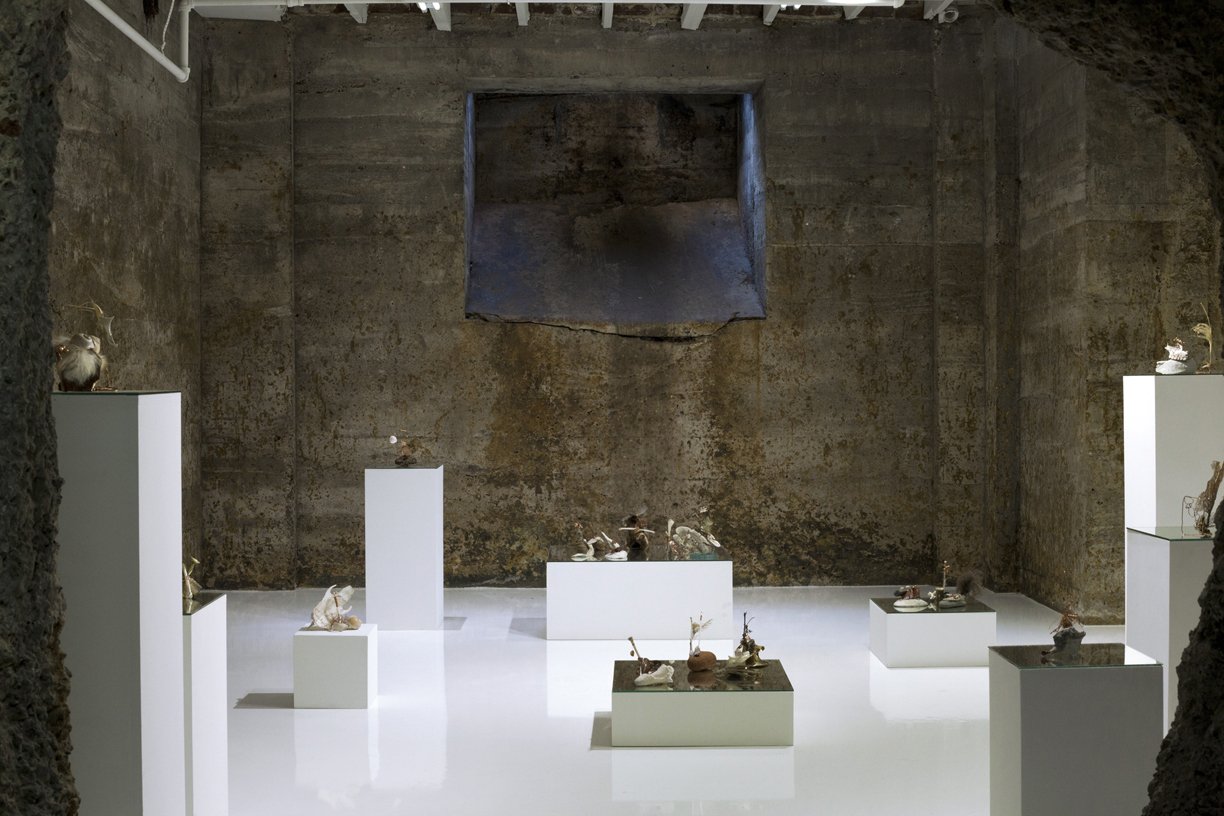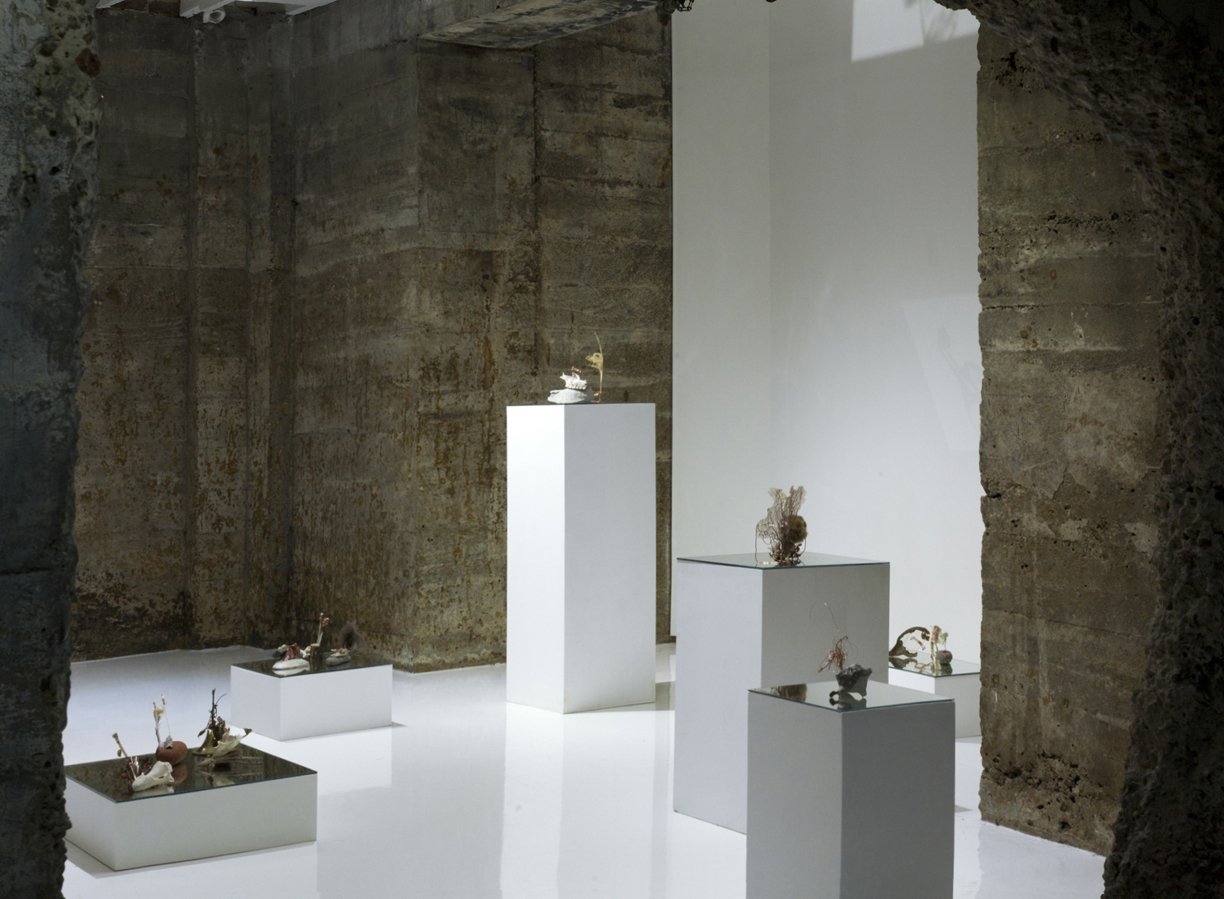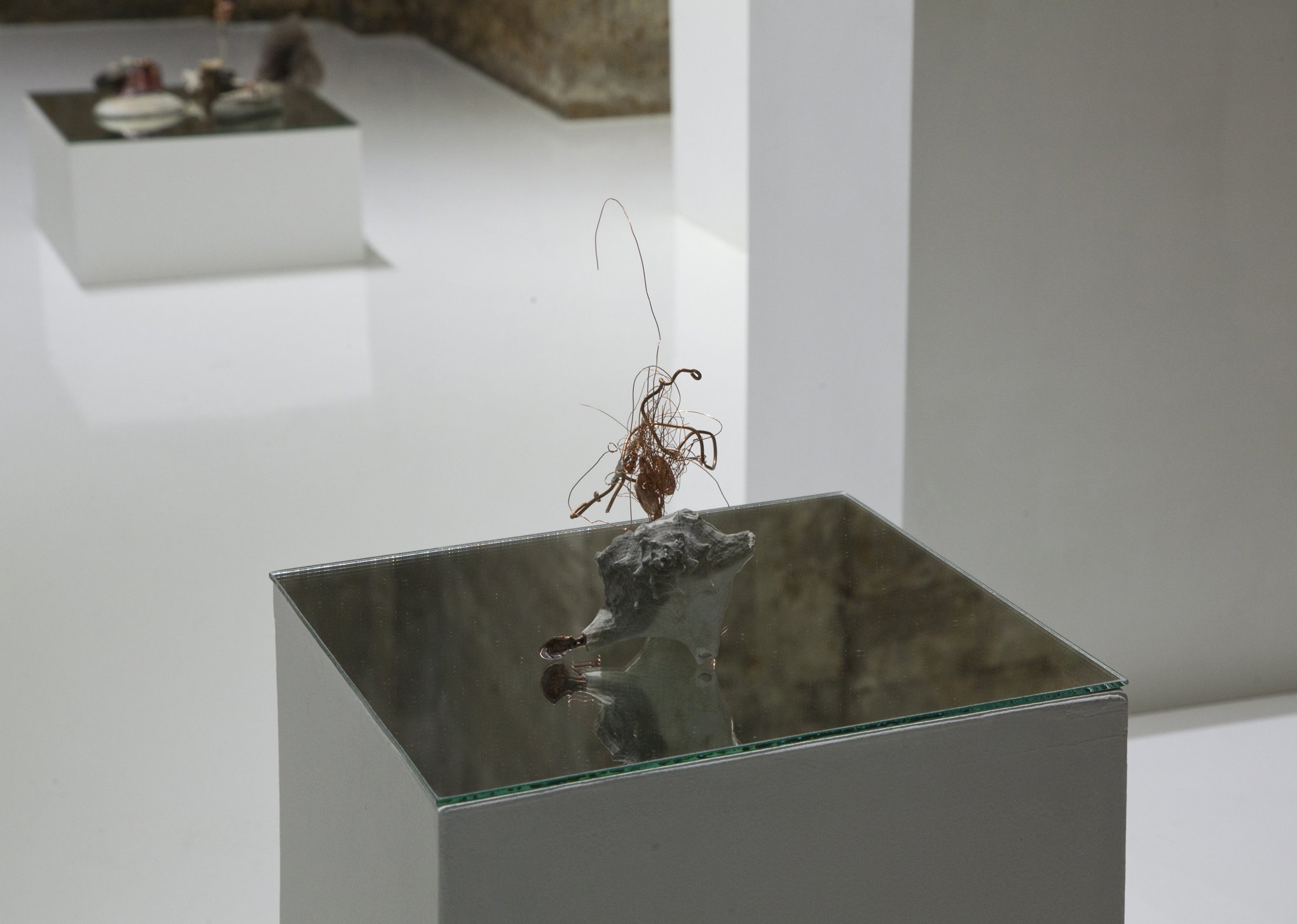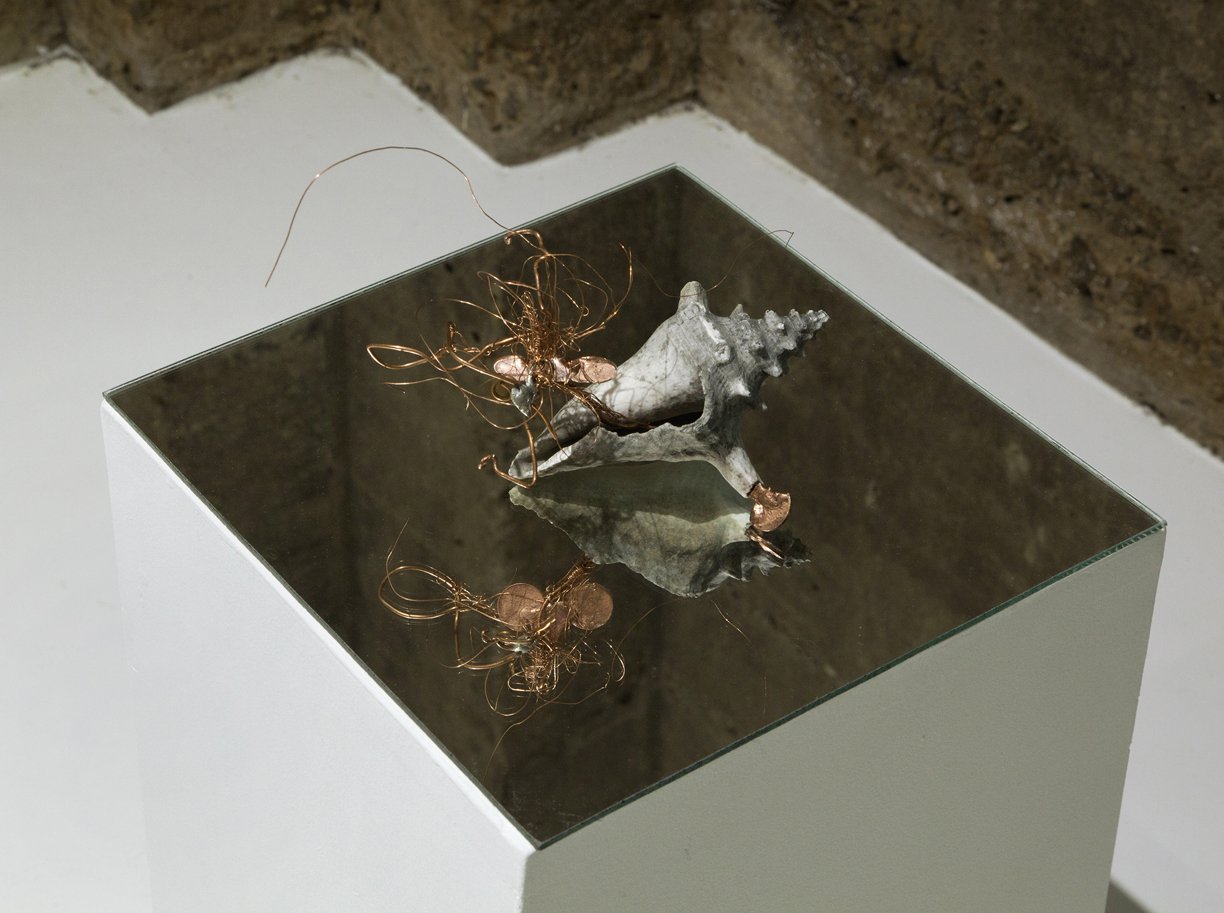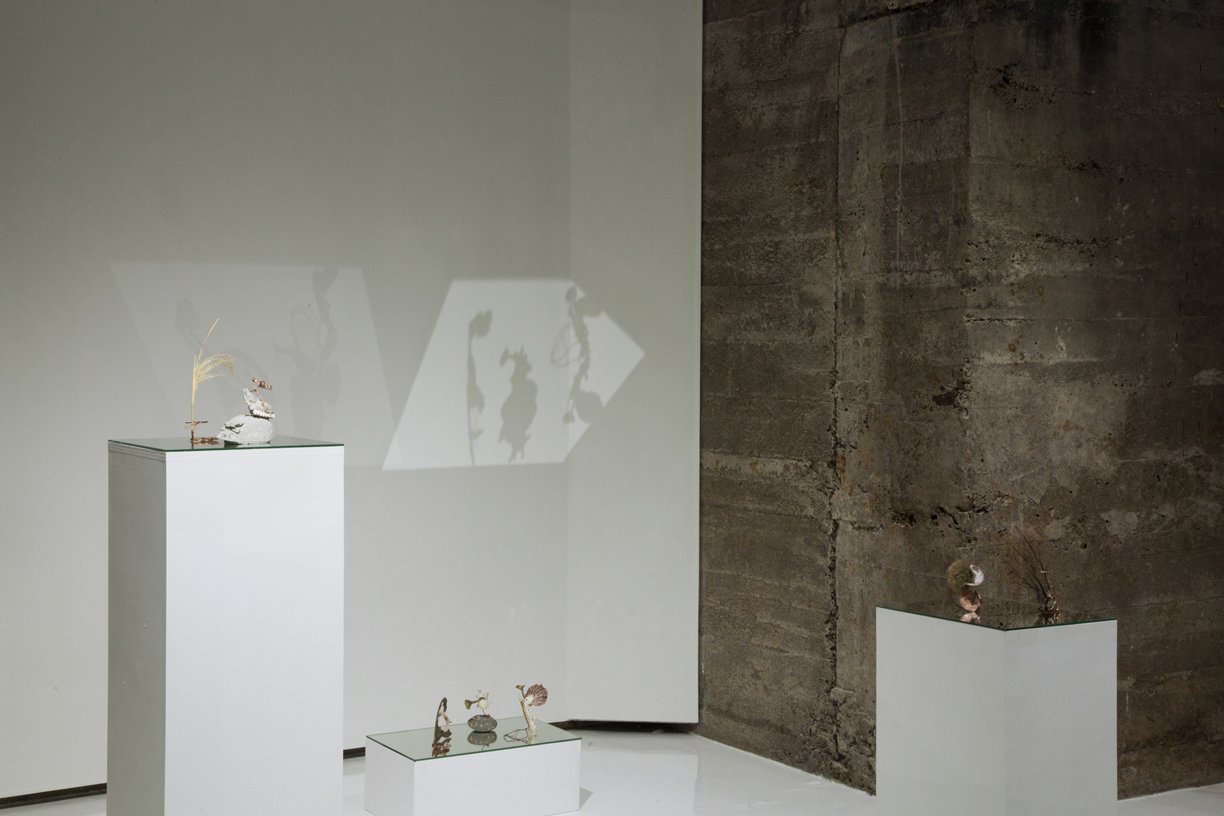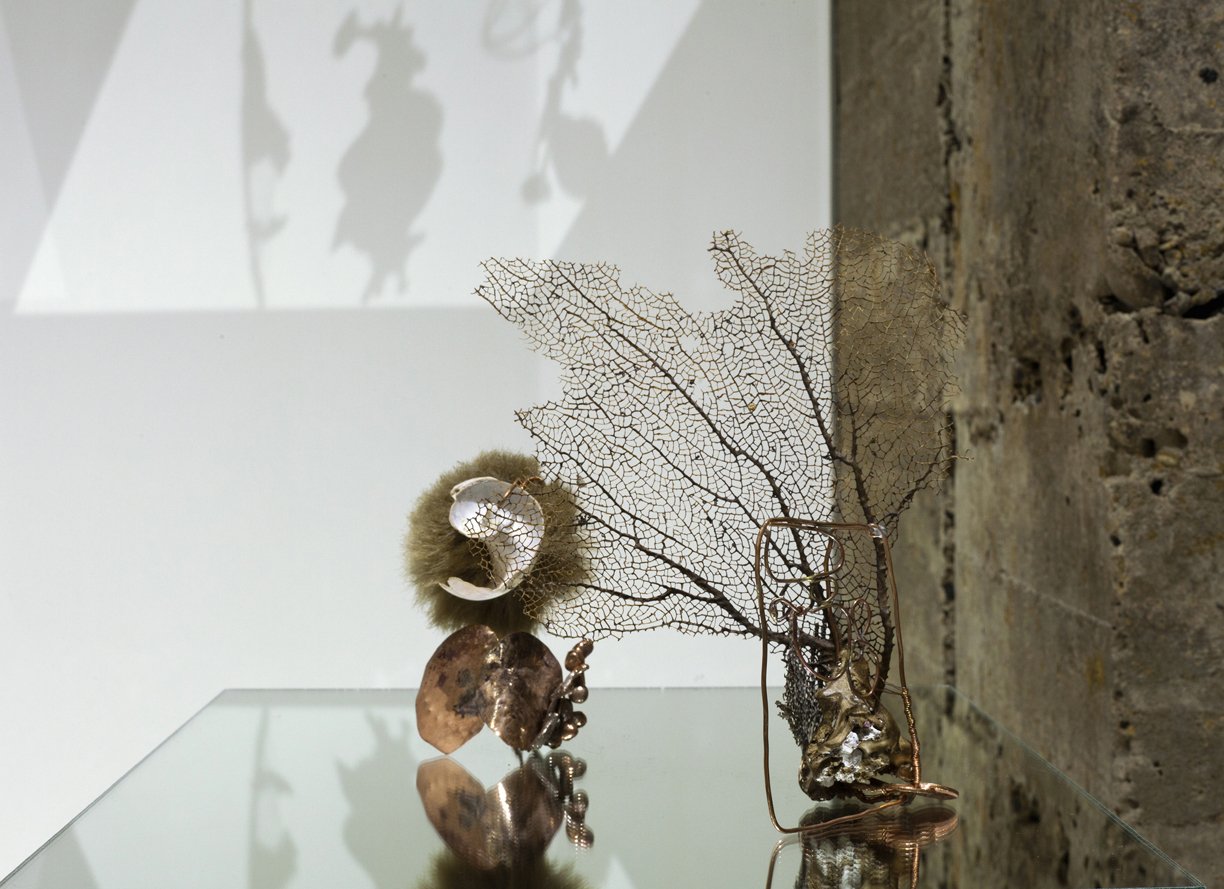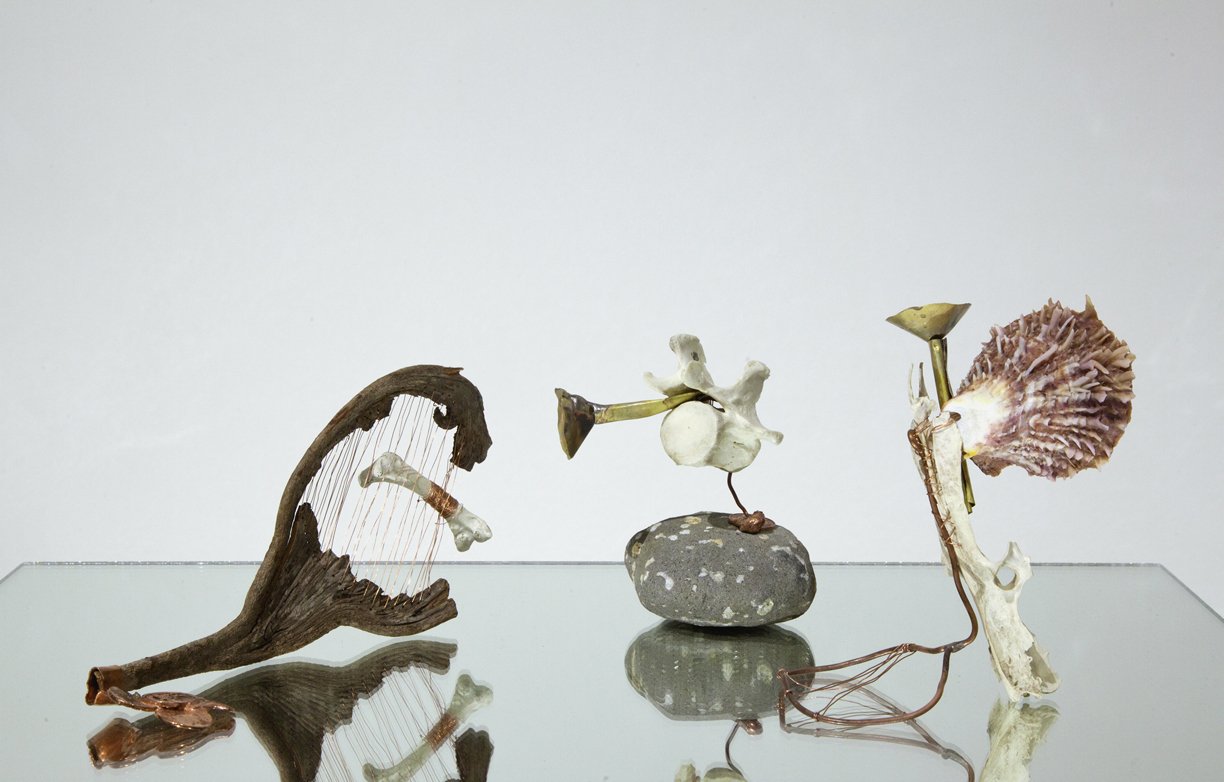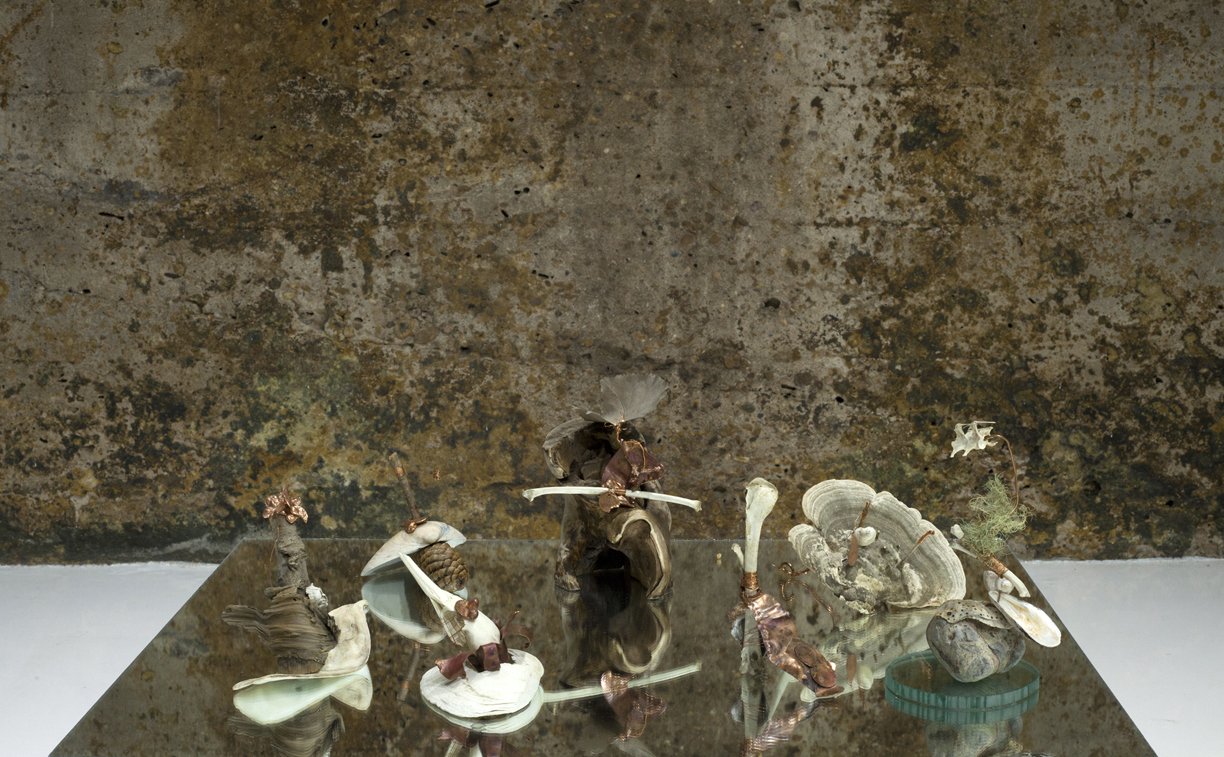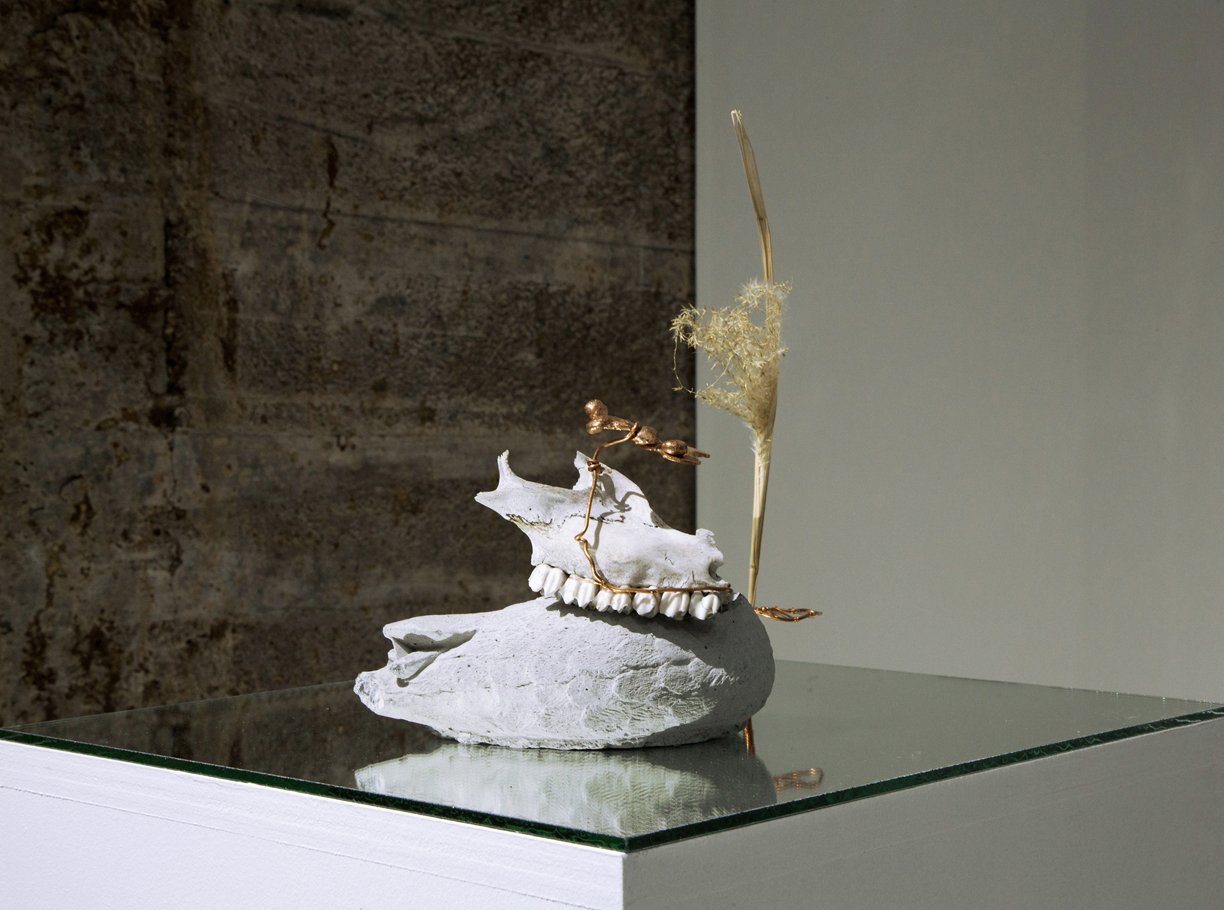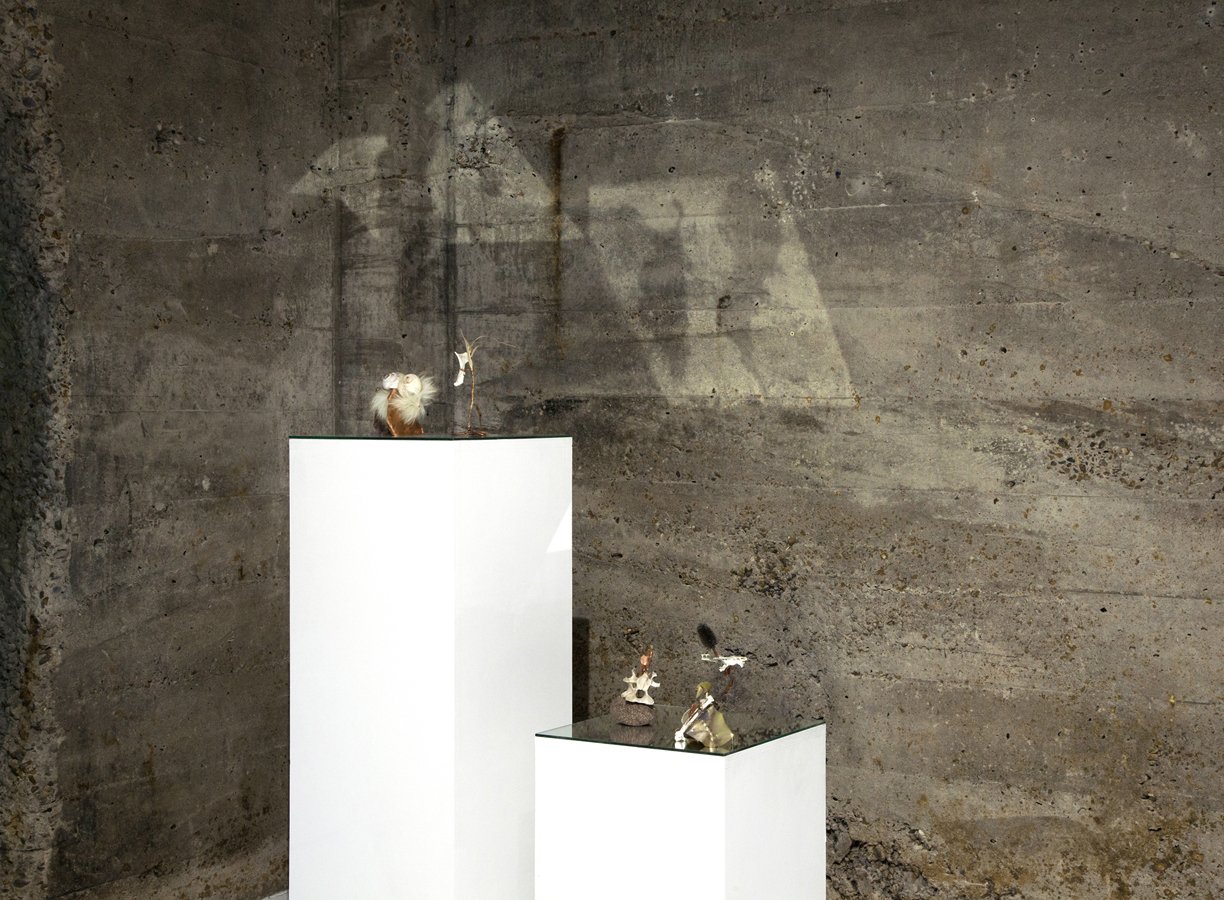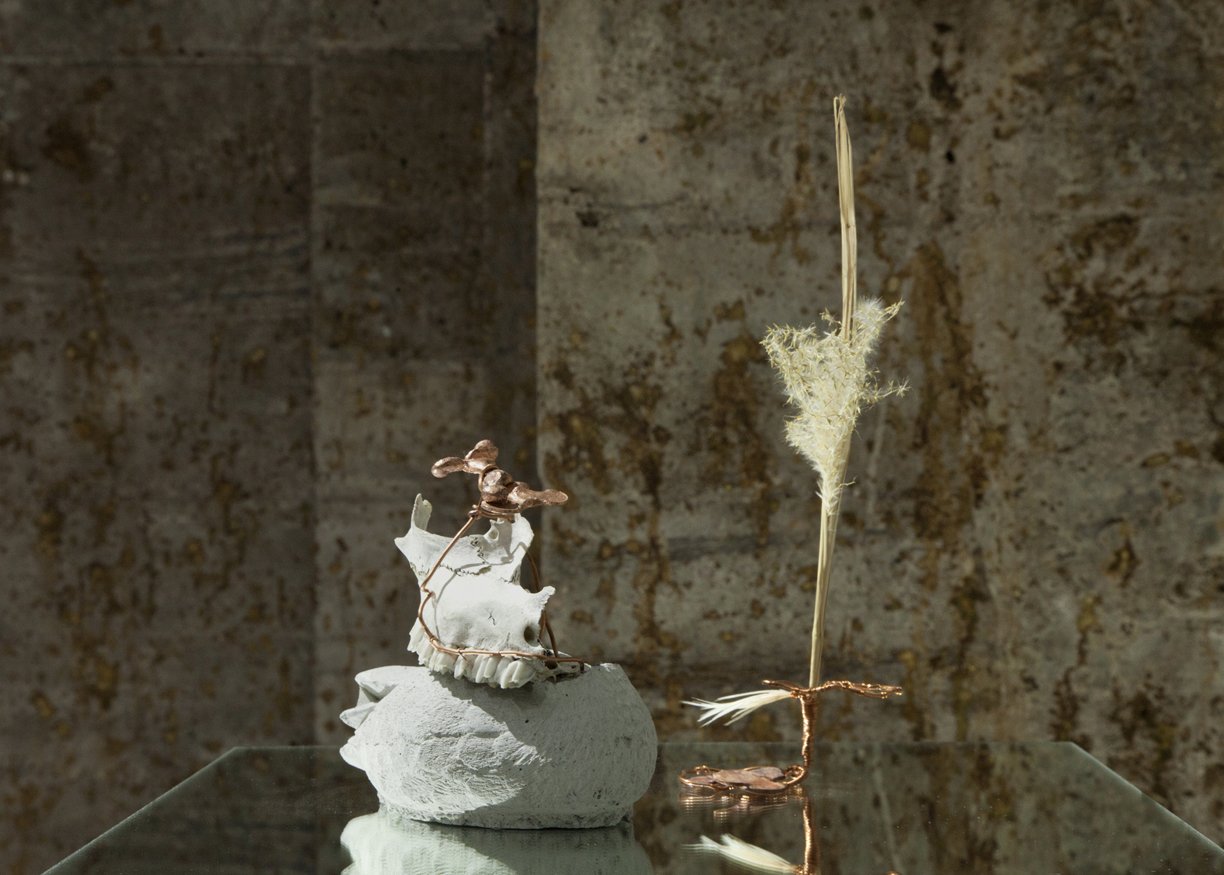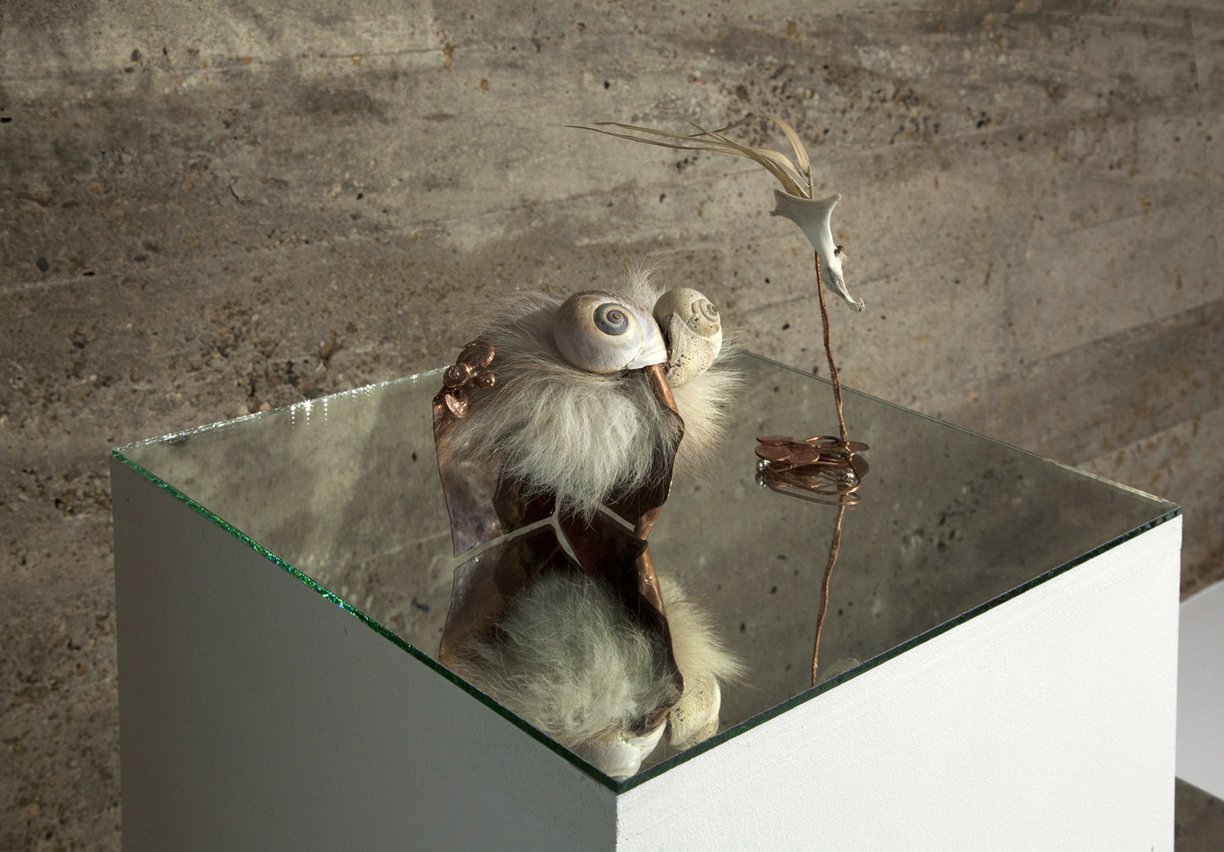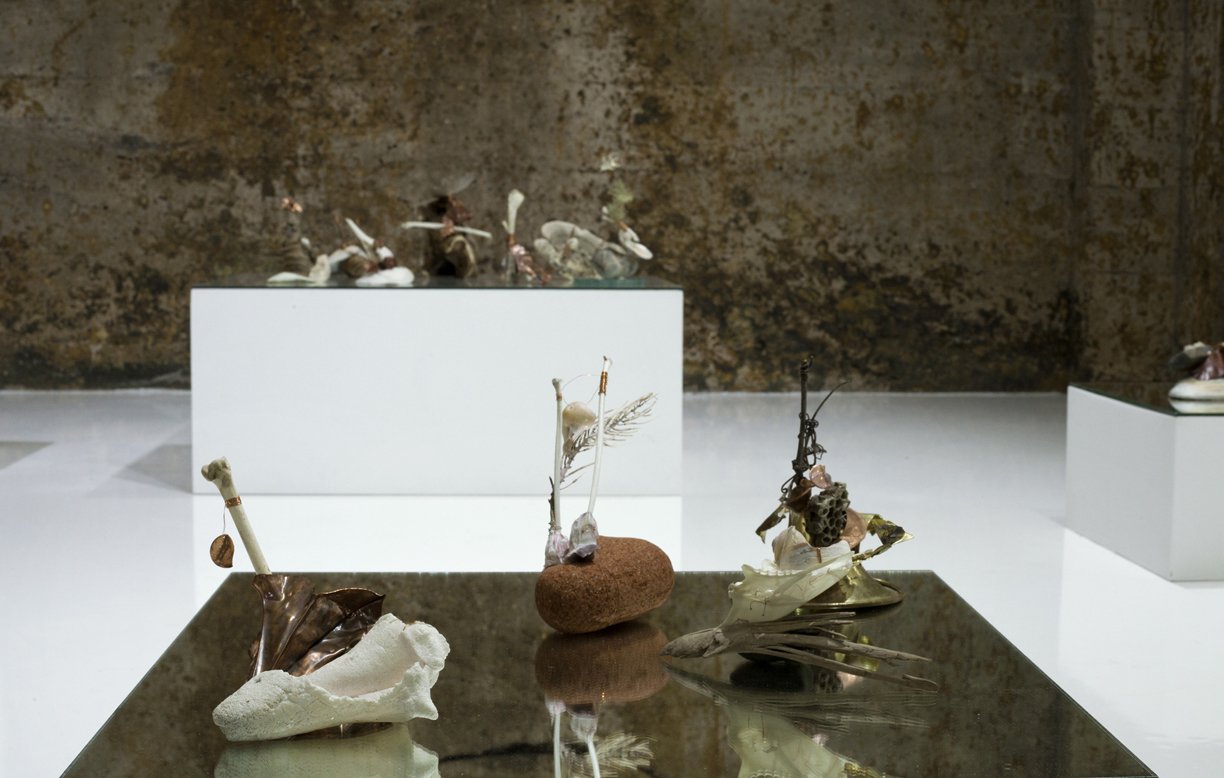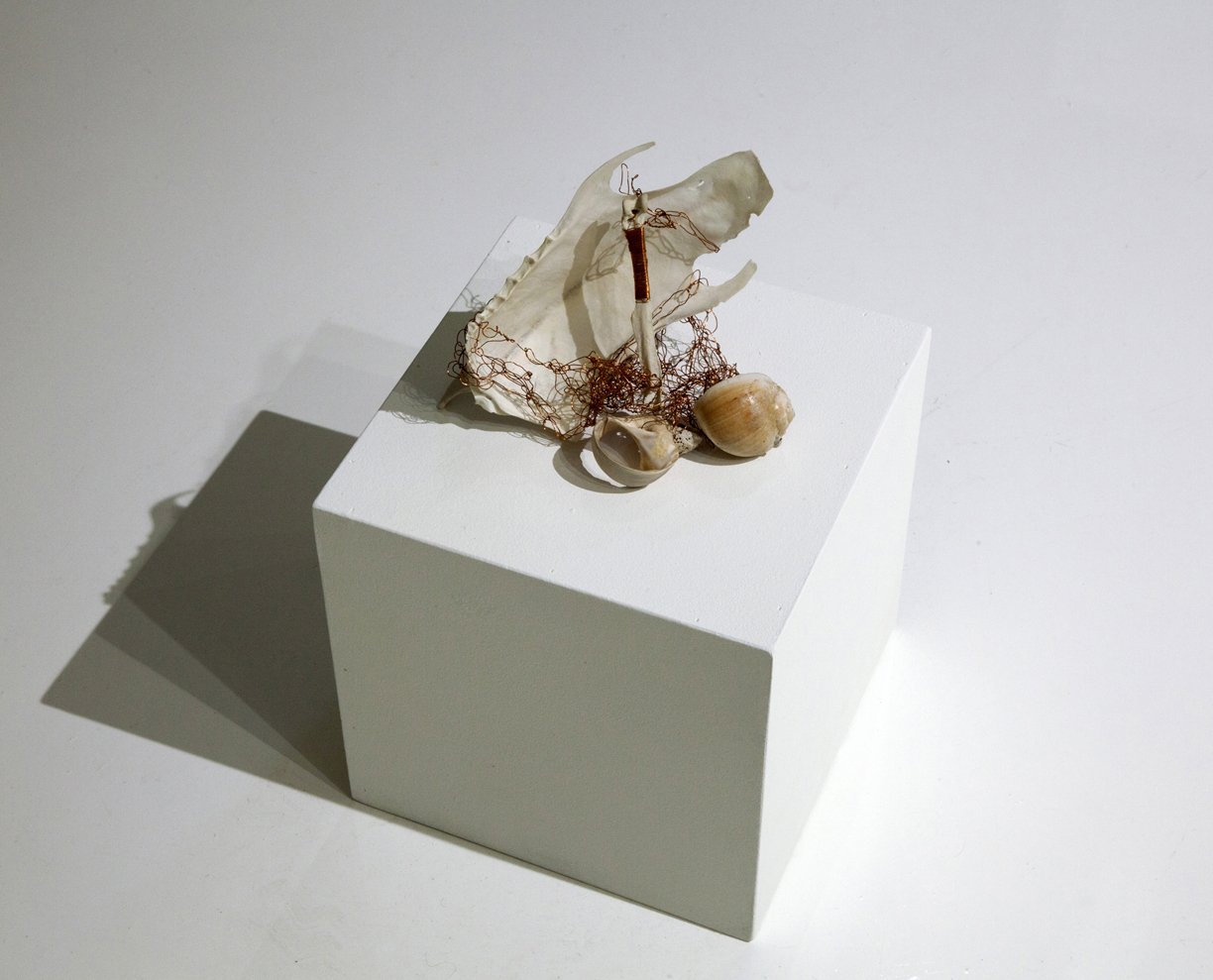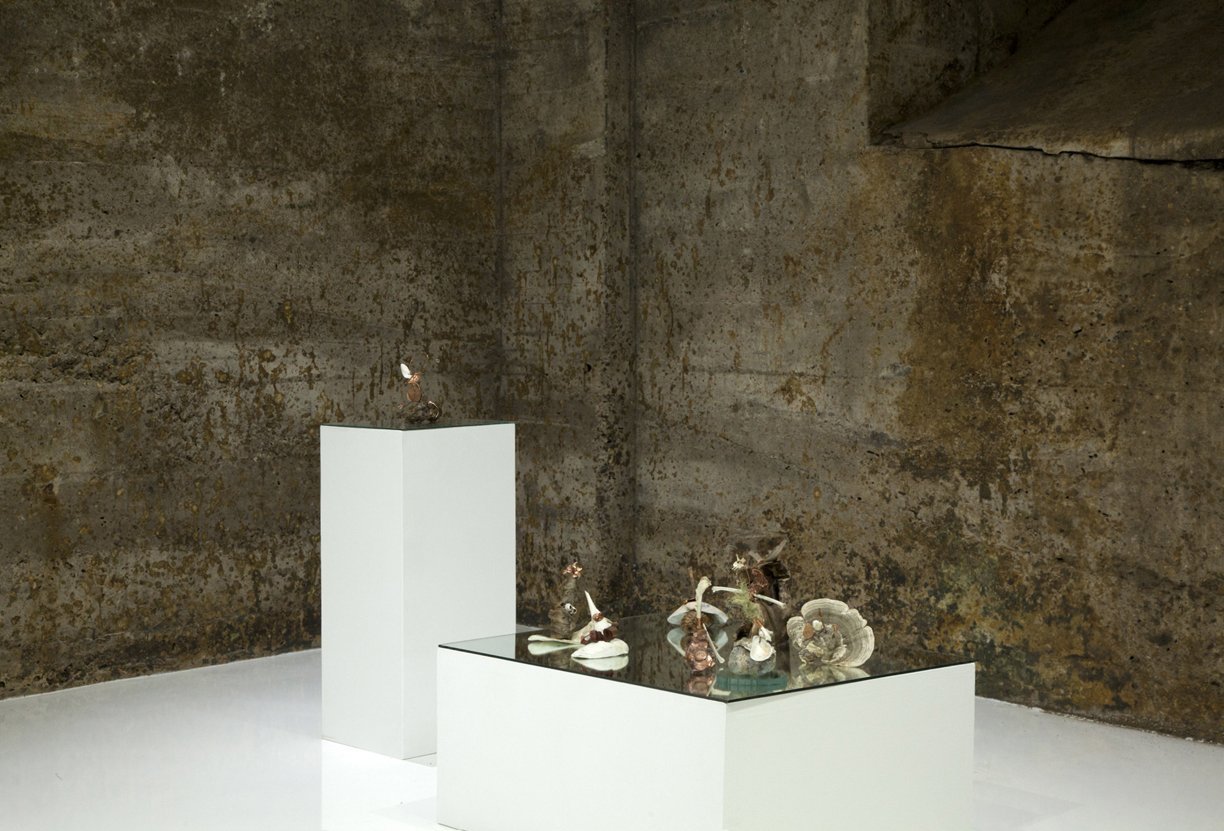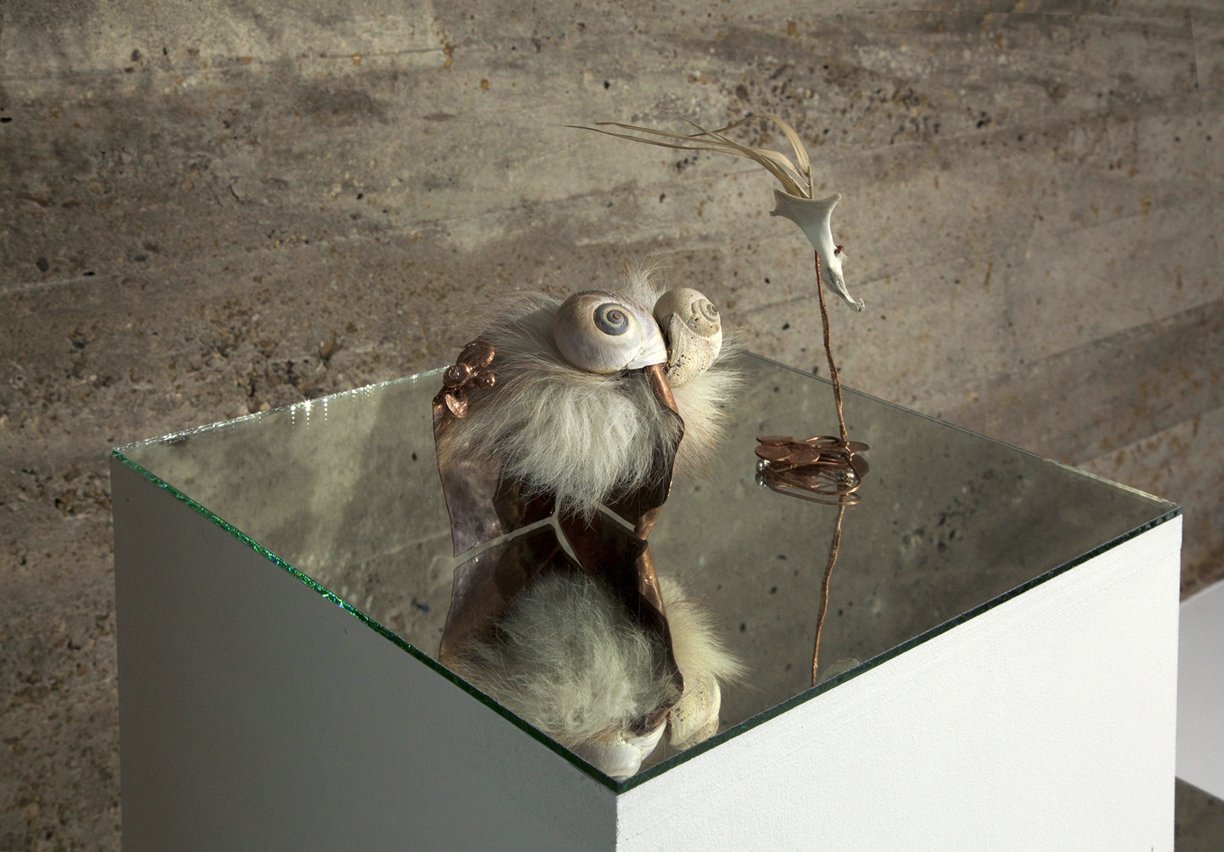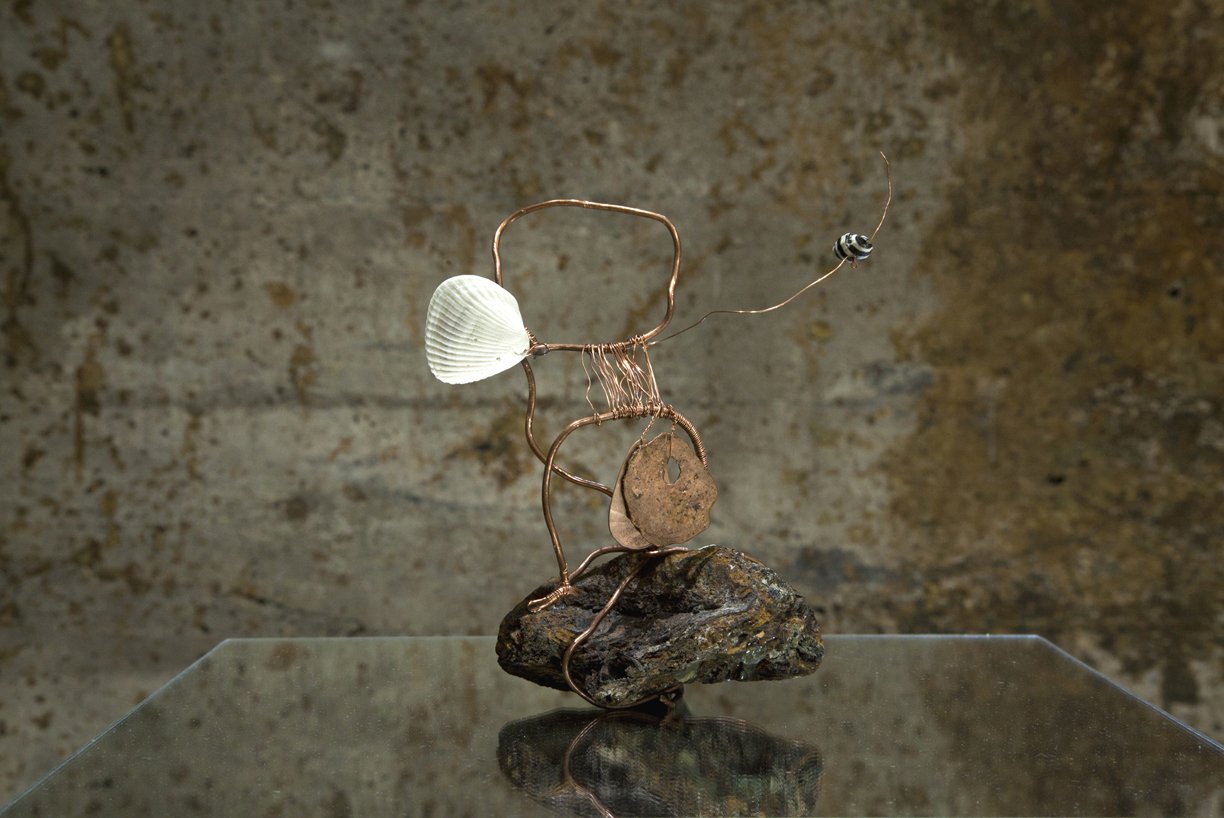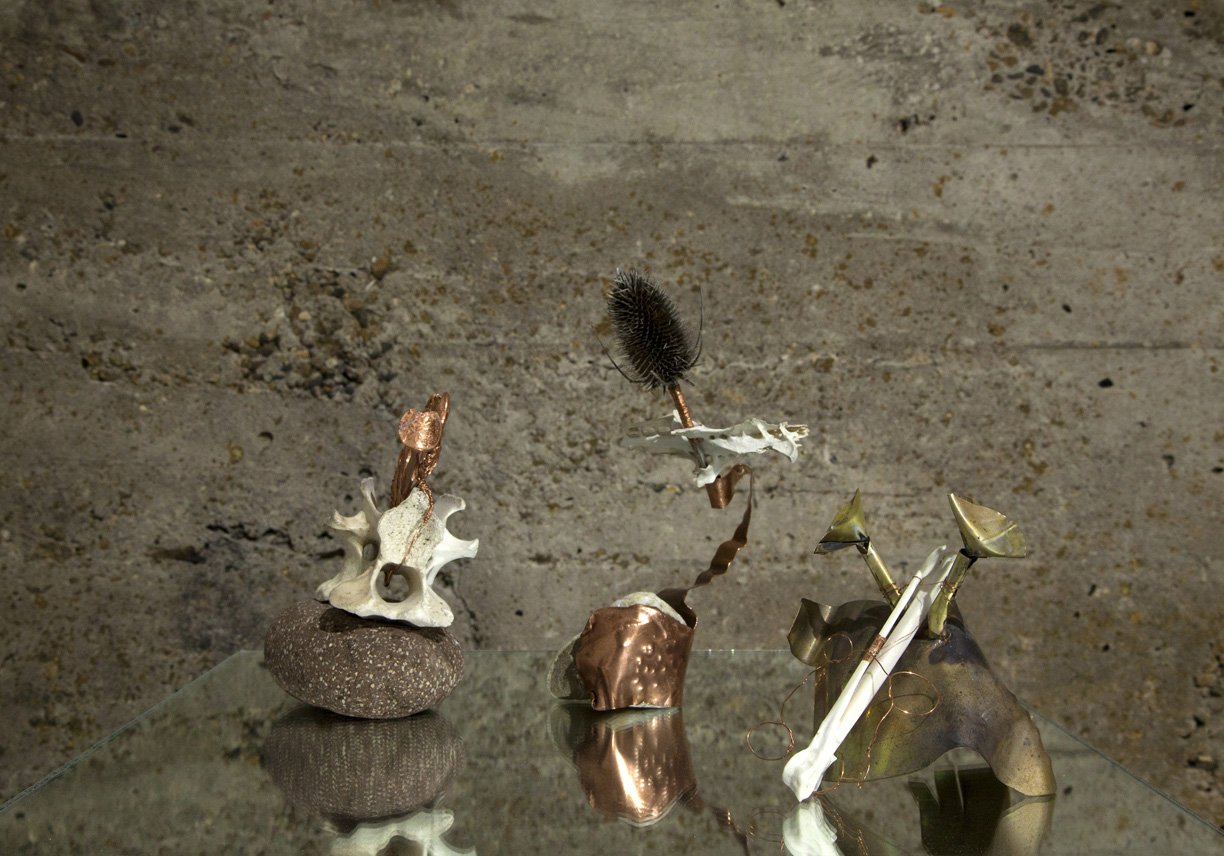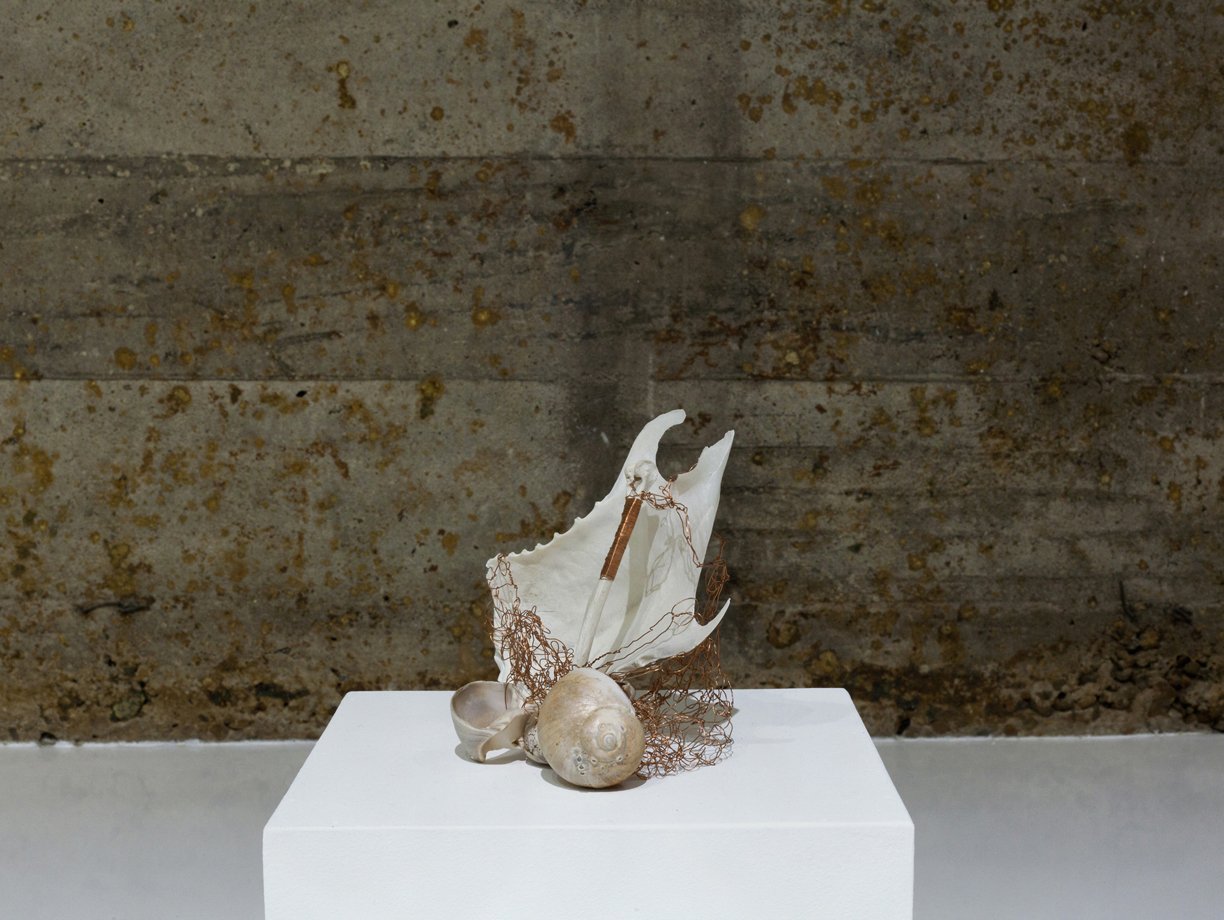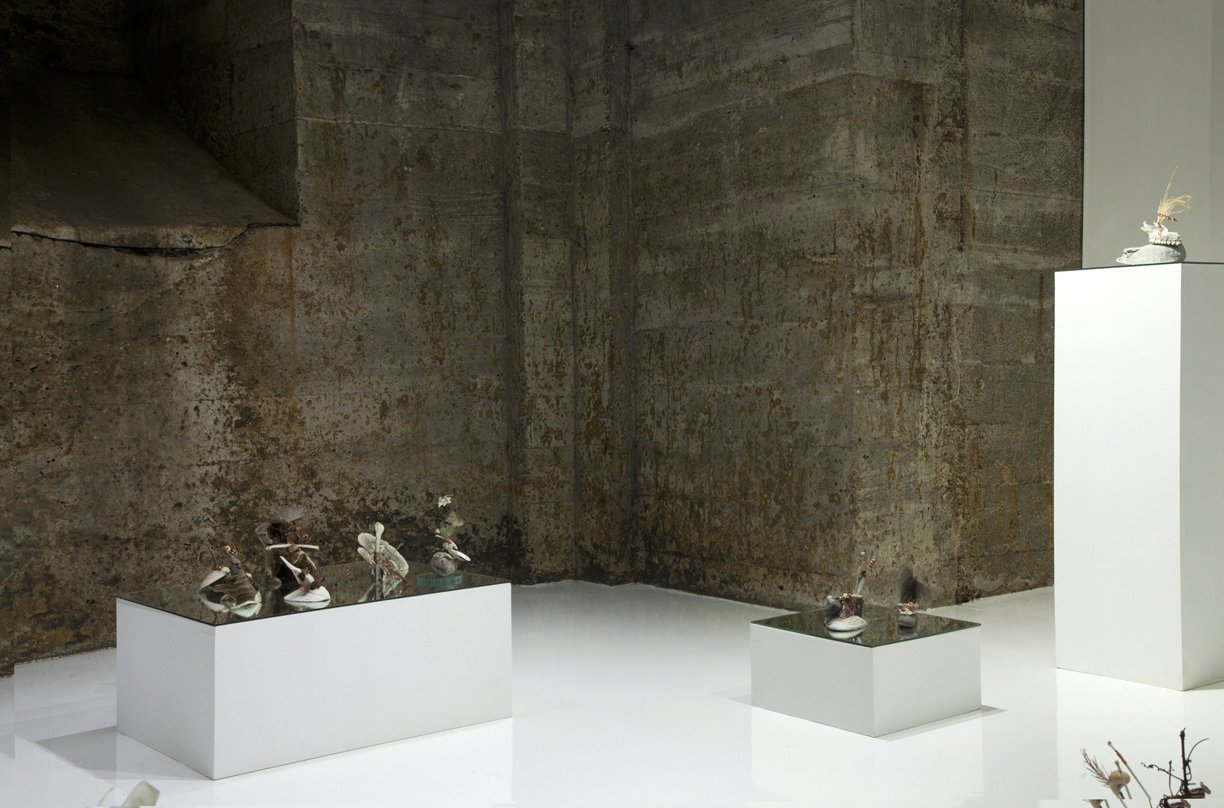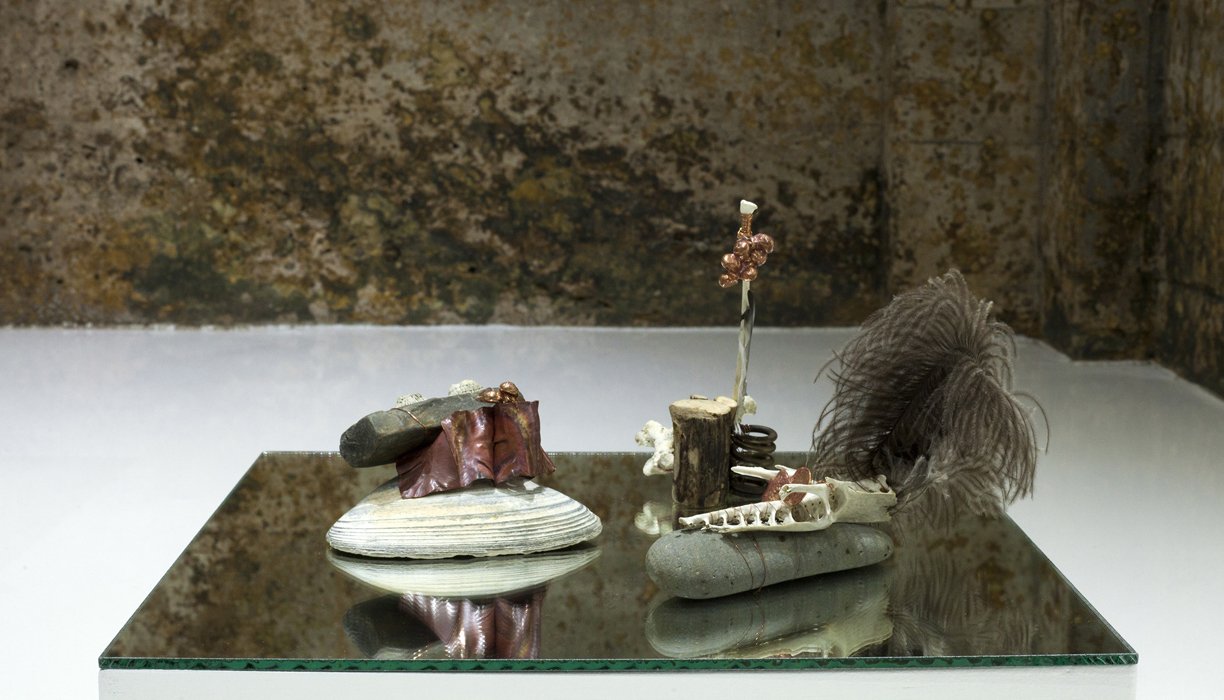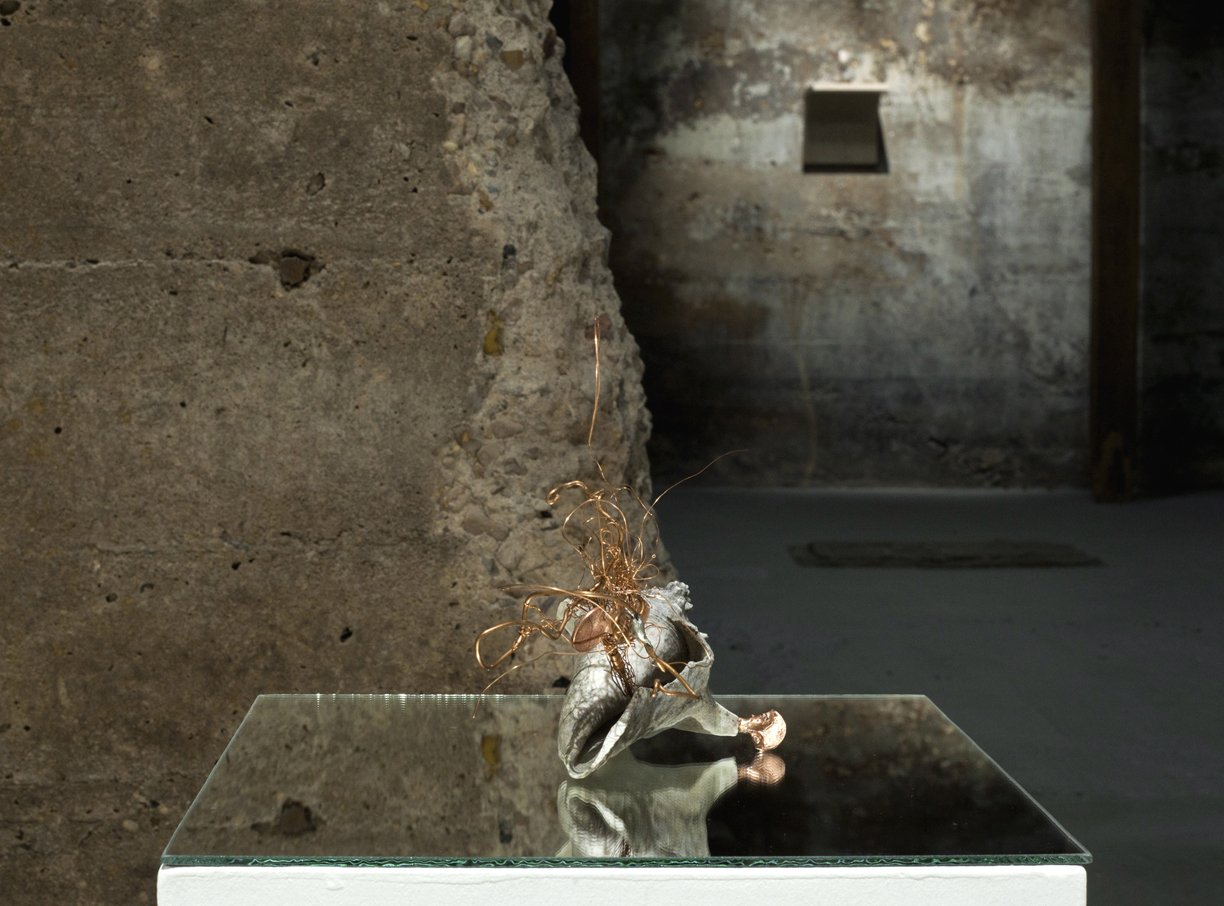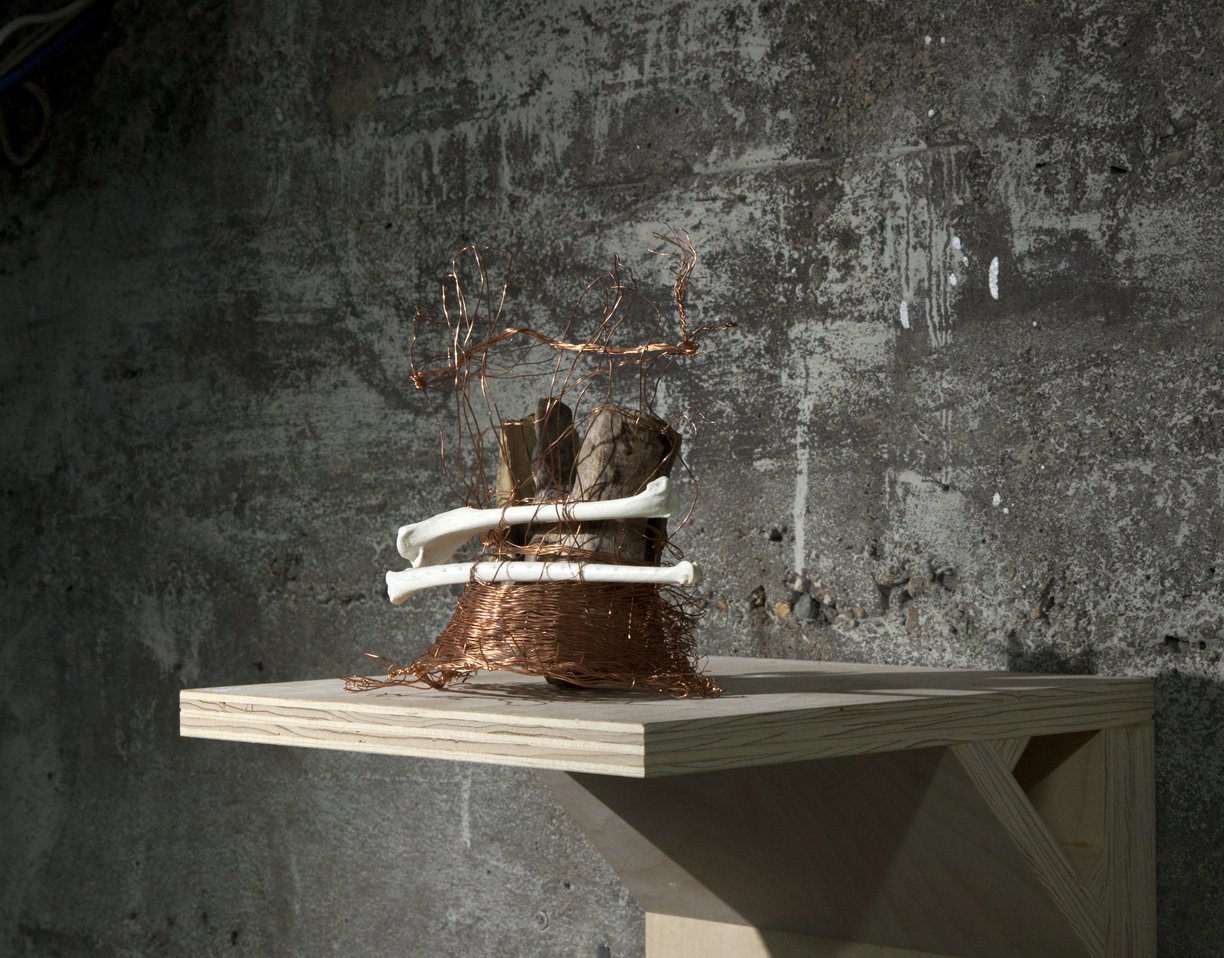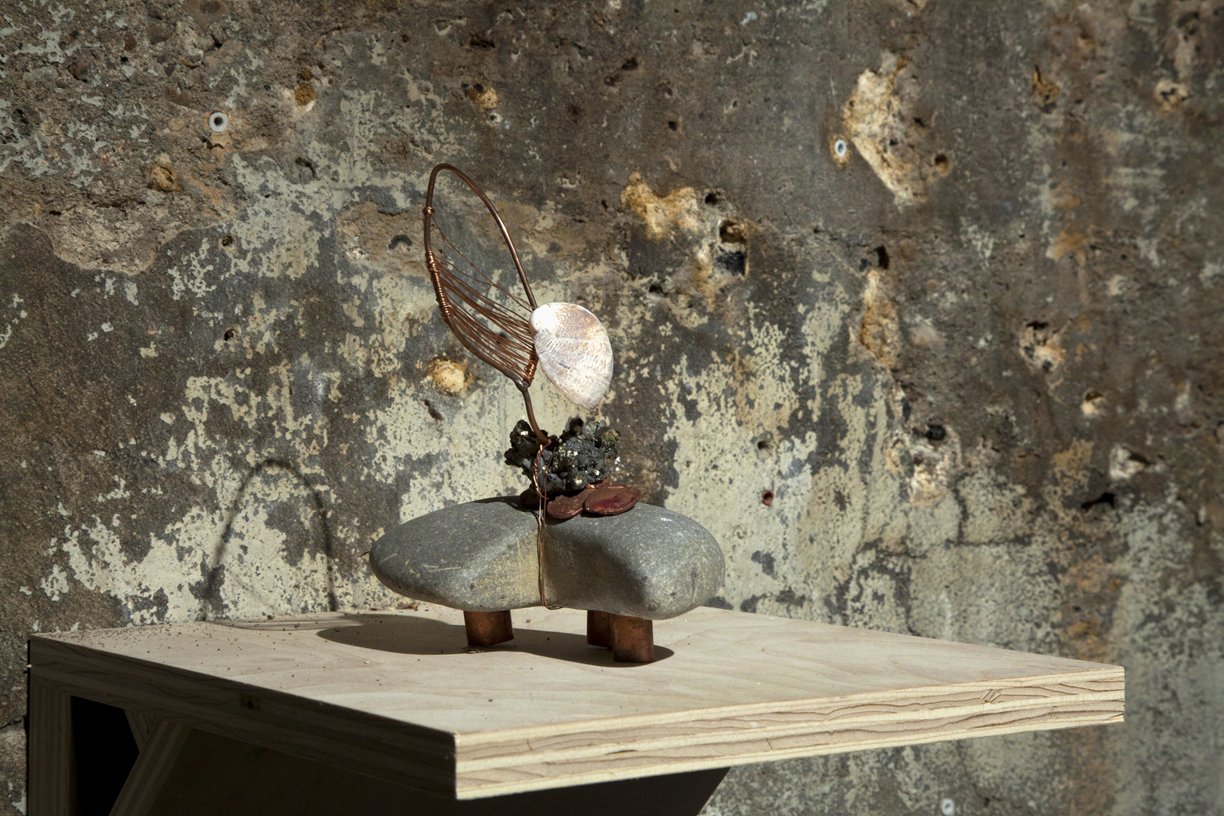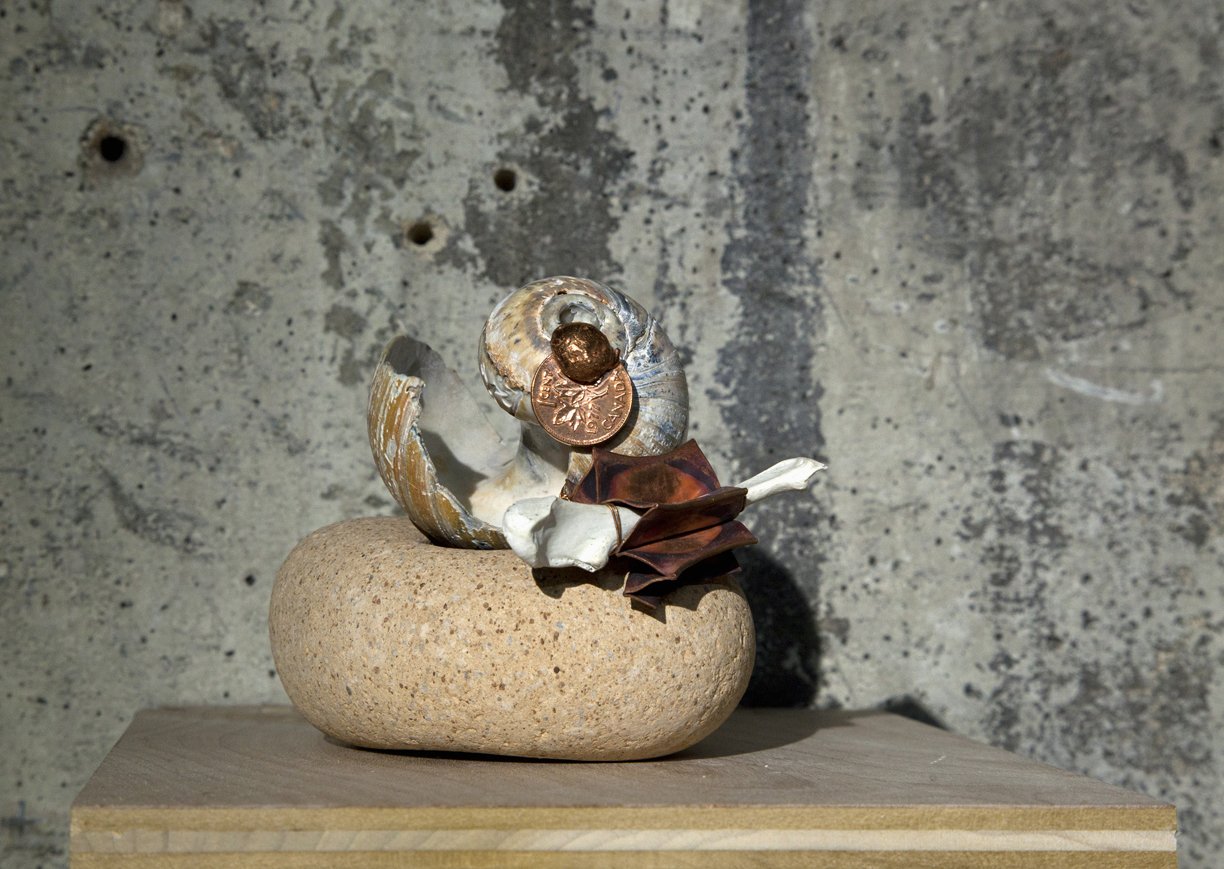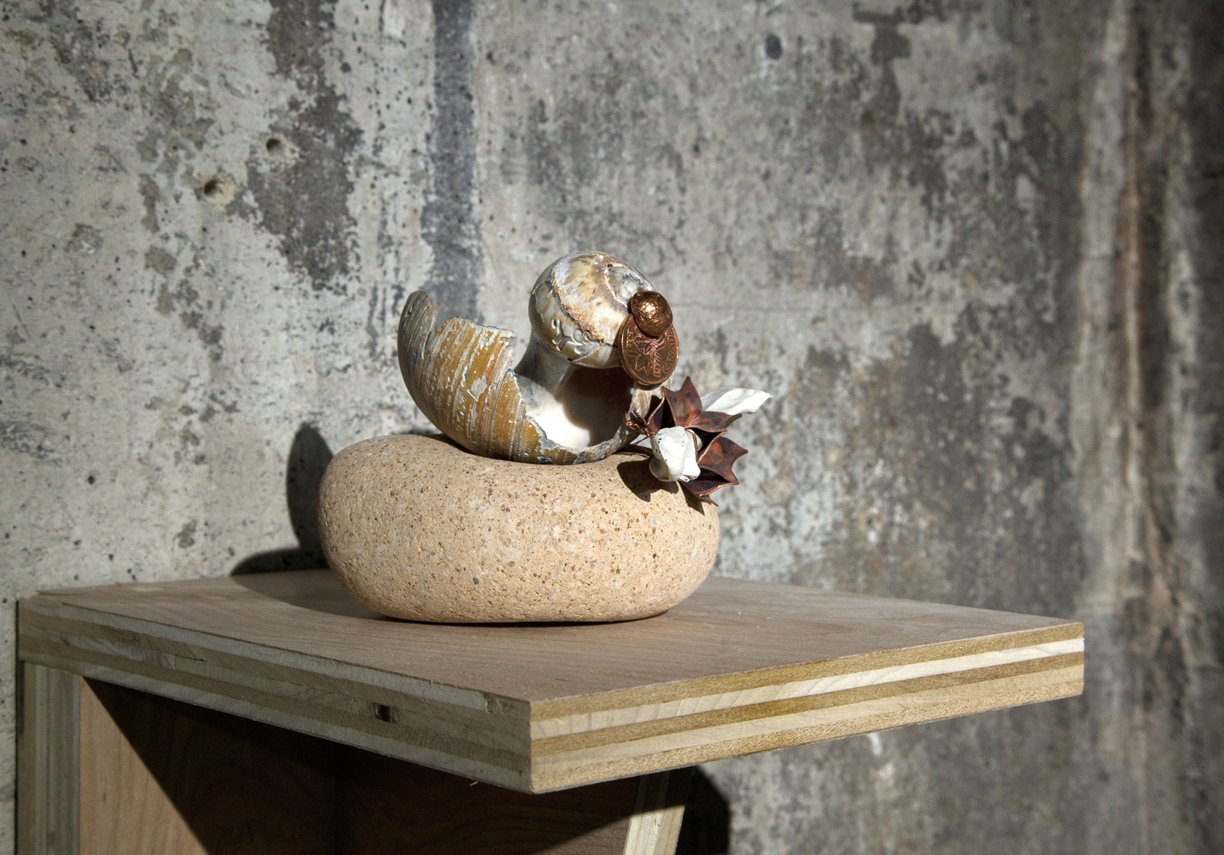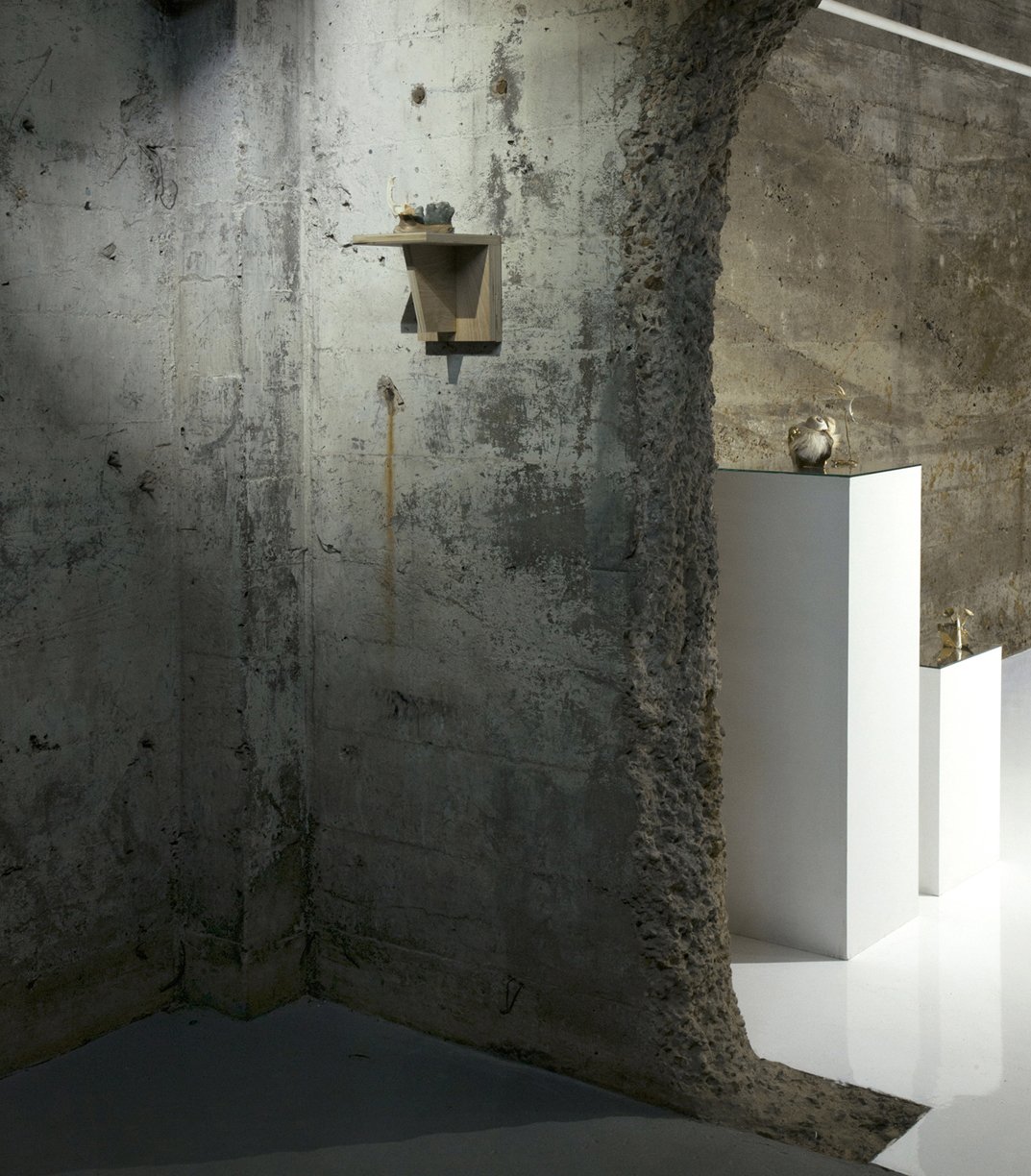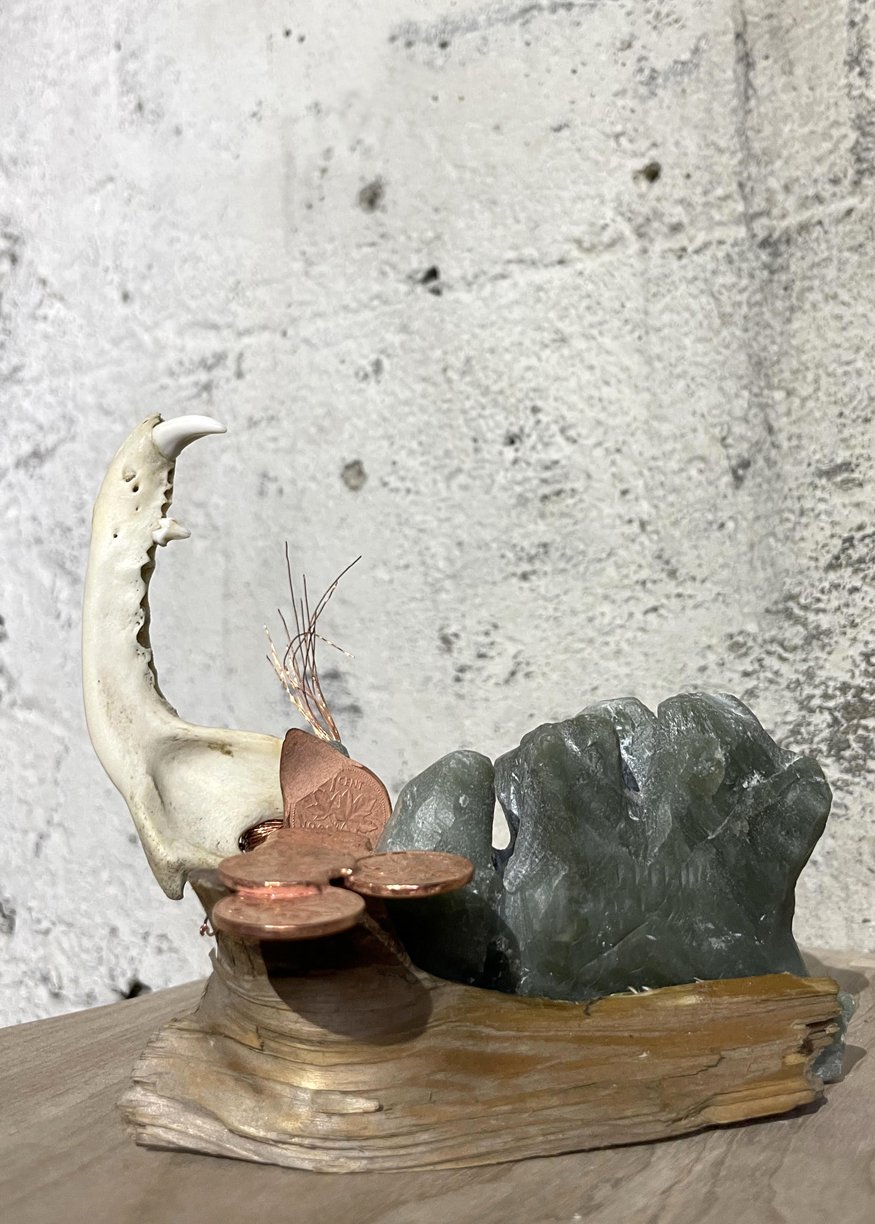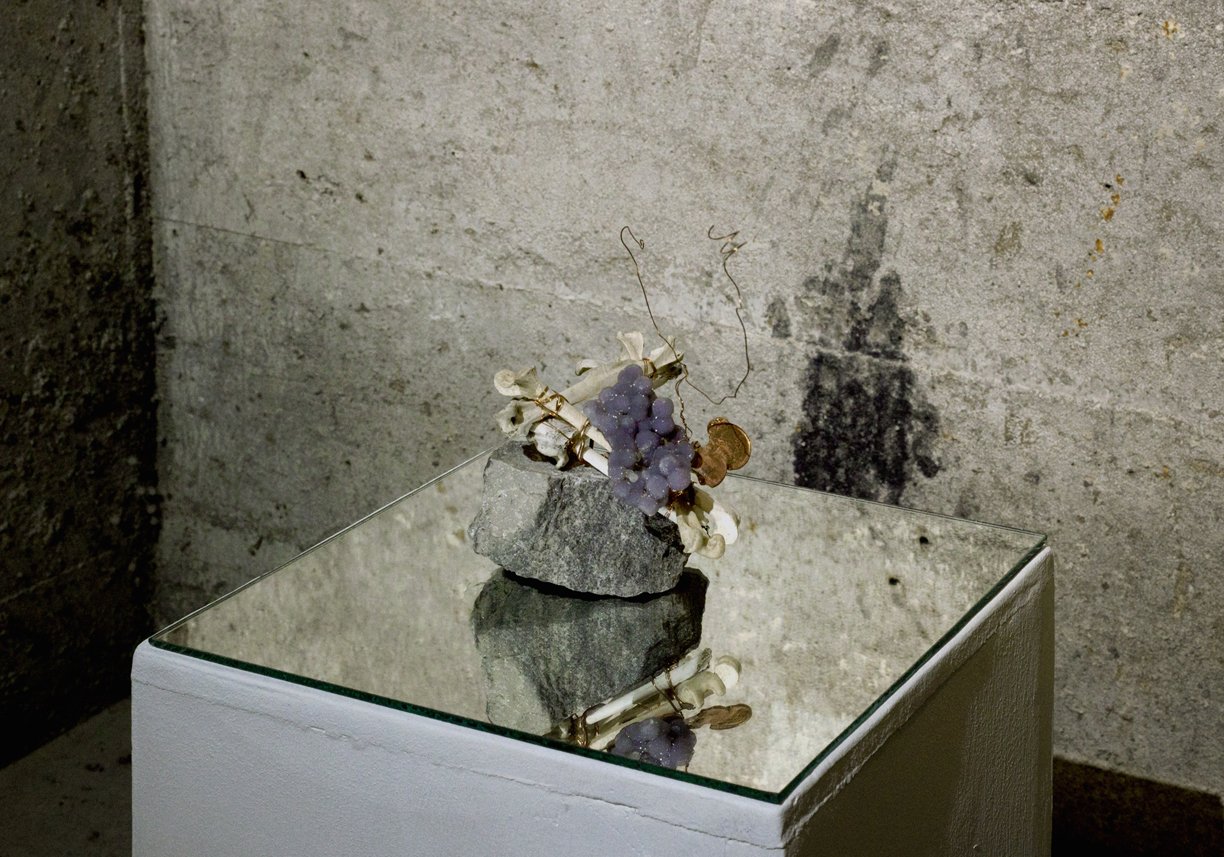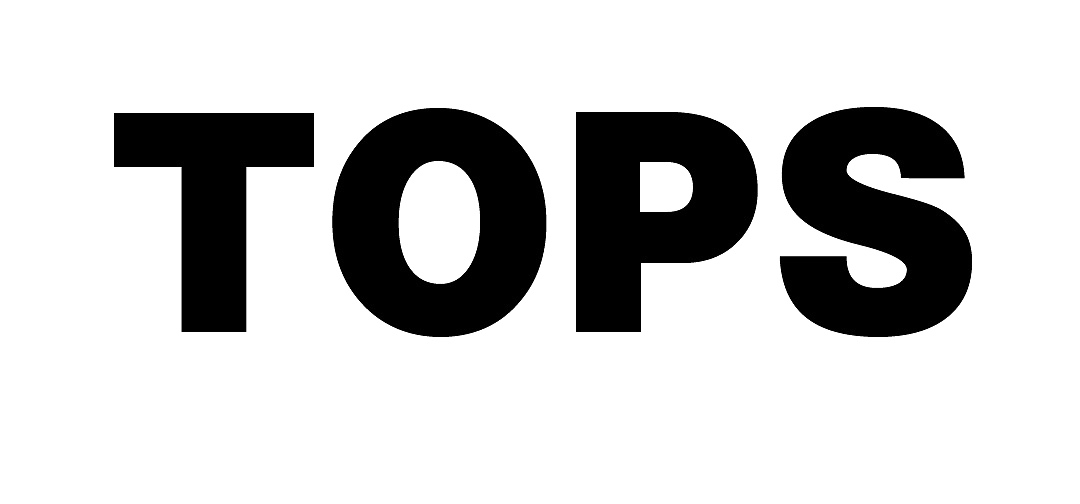Kara Hamilton
Tight Register, Loose Change
November 19th – January 8th
Tops Gallery 400 South Front street Memphis, TN 38103
Tops at Madison Avenue Park 151 Madison Avenue Memphis, TN 30103
On Kara Hamilton’s Tight Register, Loose Change
Text by Esmé Hogeveen
Toilet paper, cash, gasoline, canned goods. The onset of the pandemic in spring 2020 saw hoarding become mainstream. Headlines and scrolling newsbytes abounded with updates about real and perceived shortages and government pleas to stop stockpiling. While some fears around deficits were legitimized and others debunked, certain questions remained about the emotional and practical import of acquiring, storing, and saving excess.
During almost two years of on-and-off lockdowns and social isolation, objects in homes, offices, studios, and other frequented spaces became unexpectedly prominent companions. In Kara Hamilton’s Tight Register, Loose Change, a series of models made from discarded and salvaged materials take center stage, extending queries about the value of saving and repairing items based on an intuited sense of worthiness.
Prompted by curiosity towards the ambiguous value of a jar of now-defunct Canadian pennies, Hamilton began constructing models from unique combinations of organic and manmade components. Ranging from two inches to a little taller than a foot, Hamilton’s small, character-like agents are composed of bones, shells, wood, stones, brick, leaves, feathers, fur, glass, copper, brass, a wasps’ nest, and other found materials. Many of the structures are held together by thin-gauge copper wire, a material that recalls the artist’s fascination with retired currency and the metal’s conducting properties.
The models recline, stretch, and squat in social clusters in the gallery’s main space while large photographs of some of the same figures appear in a nearby park vitrine. These semi-distorted closeups were taken on expired film with a 35mm camera that Hamilton recovered during the pandemic—supplies and a tool which likewise gained a sense of renewed possibility during a time of material and psychical limitations. Taken together, the models and black-and-white photos conjure a sense of unlikely community—objects and images born of extended time indoors, surrounded by materials collected and preserved according to whim and instinct rather than pre-planned production.
After visiting Hamilton’s studio, I learned that copper is an ideal conductor because it combines high flexibility with low resistance—a fitting metaphor, it seems, for works that emerged from a space of constraint. The models originated as placeholders for ideas and a means of experimenting with materials already close at hand, while the photographs reflect physical details and the artist’s own process, revealing moments of chance, grace, and gratitude that can arise when looping back to something extraneous yet still imbued with potential.
In Vibrant Matter: A Political Ecology of Things (Duke University Press, 2009), theorist Jane Bennett writes about “thing-power” and describes “the curious ability of inanimate things to animate, to act, to produce effects dramatic and subtle.” There is something comparably lively about Hamilton’s chorus of hand-formed assemblages. Through creating figures from conventionally value-less resources hoarded over several years, Hamilton developed relationships with the outside world during a period of homebound disorientation. The results—the taut wisps of copper wire, the warm lustre of melted pennies, and the myriad sensory and geographic associations summoned by natural remnants—illuminate receding distinctions between abstract, physical, economic, aesthetic, and ecological values, and the challenge of comparing registers.
Kara Hamilton received her BFA from Concordia University in 1989, her Bachelor of Architecture from the University of British Columbia in 1993, and her MFA from Yale University in 1999. She has exhibited nationally and internationally at Sculpture Milwaukee, Wisconsin (2021); Plug In Institute of Contemporary Art, Winnipeg (2017); EFA Project Space, New York (2016); Tate Liverpool, Liverpool (2015); Aspen Museum, Aspen (2015); Kunstverein Amsterdam, Holland (2014); Taut and Tame, Berlin (2013); Salon 94, New York (2003, 2007, 2011, 2012); and the Contemporary Arts Center, Cincinnati, OH (2004). In 2019, she had a solo exhibition at the Art Gallery of Ontario entitled Water in Two Colours. Hamilton is also the co-director of Kunstverein Toronto. She lives and works in Toronto, Ontario, Canada and is represented by Cooper Cole Gallery.
